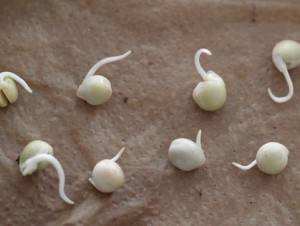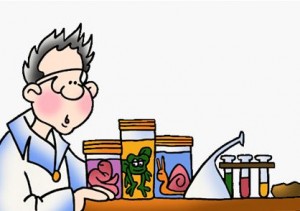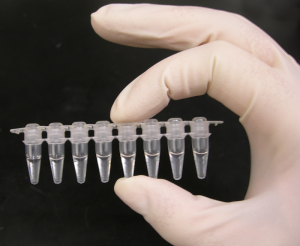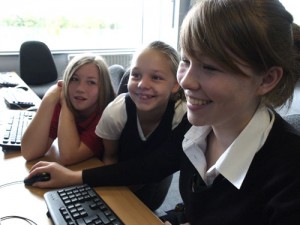

National Qualifications - Sciences blog
 Calling all Biology Teachers! Do your learners end up wasting time when looking for information on the internet? Check out two brand-new resources designed to enable students of the new Higher Biology to develop the skills of effective and informed web-based research - an introductory Powerpoint presentation and an interactive pupil resource.
Calling all Biology Teachers! Do your learners end up wasting time when looking for information on the internet? Check out two brand-new resources designed to enable students of the new Higher Biology to develop the skills of effective and informed web-based research - an introductory Powerpoint presentation and an interactive pupil resource.
Also, have a look at this new resource designed to help learners develop their skills of scientific experimentation, investigation and enquiry. Starting from a simple experiment based upon investigating respiration rate in germinating peas using a datalogger, learners are encouraged to consider each of the stages involved in conducting an effective scientific investigation and what their results actually mean. Extension activities are also suggested.
Tell us what you think of these resources!
More Science Development Officers representing Biology, Chemistry and Physics have been very busy this week delivering CPD to hundreds of science teachers from Aberdeenshire and Highland regions on their subject INSET days.
Science Development Officers representing Biology, Chemistry and Physics have been very busy this week delivering CPD to hundreds of science teachers from Aberdeenshire and Highland regions on their subject INSET days.
The venue for the Aberdeenshire teachers’ meeting was Westhill Academy and the Highland teachers’ meeting was held in Millburn Academy in Inverness.
The main focus of the CPD was an update on the latest progress in the revised Highers in the four sciences. The powerpoint presentations from these events will be made available in the NQ Science Glow Groups by the end of this week.
MoreLTS have commissioned teachers to produce a variety of resources to support the new Highers in Biology and Human Biology. These resources will include;
* Teacher Support Notes
* Associated Learner Activities
* a range of exciting, topical ’Case Studies’ supporting the development of key scientific skills
The support notes will cover all areas of both Higher courses, with a particular focus on new content. These resources are now reaching first draft stage and should be available on the LTS NQ Biology page early next year. Early versions of these resources have already begun to appear on the GLOW NQ Biology page.
Watch this space for more information!
More A fantastic new resource is now available on the NQ Biology Glow group to support students and teachers of the new Higher Biology. The resource is a case study of the Polymerase Chain reaction (PCR) and gives learners the opportunity to carry out the PCR experiment, as well as looking at applications of PCR in modern biology. Furthermore, the resource provides an opportunity for learners to develop their problem-solving skills in relevant, topical contexts through analysis of PCR data related to forensics and disease-screening .
A fantastic new resource is now available on the NQ Biology Glow group to support students and teachers of the new Higher Biology. The resource is a case study of the Polymerase Chain reaction (PCR) and gives learners the opportunity to carry out the PCR experiment, as well as looking at applications of PCR in modern biology. Furthermore, the resource provides an opportunity for learners to develop their problem-solving skills in relevant, topical contexts through analysis of PCR data related to forensics and disease-screening .
The resource will also appear shortly on the Biology page of the National Qualifications website. Watch this space!
MoreApproximately 30 Scottish teachers commissioned by LTS to produce materials to support the new Biology/ Human Biology qualifications met at the Optima Building in Glasgow on 8th November 2010. The purpose of this meeting was to share ideas and good practice, and to establish the characteristics of a fantastic resource to support both learners and teachers.
The meeting was supported by representatives from Abertay University, The University of the West of Scotland and Edinburgh University, as well as SSERC and SQA. All of these participants gave valuable input and perspective to the discussions.
Geoff Morgan (SQA Qualifications Design Consultant, Biology) gave a very interesting presentation on the use of ‘case studies’ in Higher Biology which stimulated lots of great discussions within the group.
Some excellent materials which have already been produced were showcased during the meeting, highlighting the high standard of resources being produced.
The meeting was highly successful and allowed teachers to establish links between resources, as well as sharing innovative ideas and good practice.
Watch out for these new resources appearing on the NQ Biology GLOW group and on the NQ website over the coming weeks!
More The new CfE-inspired Higher Sciences specifically develop a number of crucial transferable skills for life and work. In the Physics and Chemistry Highers these skills are gained through the ‘Researching’ half-units, whereas in the Biology and Human Biology Highers they are developed through the ‘case studies’. A mixture of scientific and generic skills are developed throughout the new courses.
The new CfE-inspired Higher Sciences specifically develop a number of crucial transferable skills for life and work. In the Physics and Chemistry Highers these skills are gained through the ‘Researching’ half-units, whereas in the Biology and Human Biology Highers they are developed through the ‘case studies’. A mixture of scientific and generic skills are developed throughout the new courses.
One key skill for any scientist is to be able to undertake an effective literature search to find out what is already known about their topic of interest. Web-based research is becoming an increasingly important tool for scientists. Two superb resources (an introductory powerpoint and a set of pupil activities) have been prepared to support teachers and learners with the development of effective web-based research skills in chemistry. These resources can also be found on the NQ Chemistry Glow group.
Watch this space for news on other brand-new resources for the development of other key scientific skills….!
MoreA novel feature of the new National Qualification in Higher Biology will be the ‘case study’. Case studies can be used to deliver modern, topical Biology content in an innovative and interesting way. They involve enquiry-based learning and allow students to develop the essential practical and research skills needed in the world of science and work.
A team of writers is currently creating a variety of exciting ‘case study’ resources on behalf of LTS. Case studies currently under production include, for example;
Case studies will give biology students the opportunity to engage with cutting edge science, and to apply this to their learning in class. Case study resources will become available on the NQ section of the LTS website and also through the Biology NQ Glow group over the next few months.
Watch this space!
Moreeight="364">
The new Highers in Chemistry and Physics contain a ‘Researching Chemistry’ half-unit in which students learn about the key skills of scientific enquiry, and then apply and develop these skills via investigation into a topical scientific issue.
Teachers will find the BBC video clip above from the TV programme ‘Bang Goes the Theory’ on ‘How to Investigate the Unknown’ to be a useful introduction to the concepts involved in scientific research. It is based on research into factors affecting the effectiveness of ‘canister rockets’, but could be re-applied to any other research topic.
The weblink also gives interesting additional background reading and suggested activities. The resource could also be used to introduce investigative activities in any scientific context, especially Adavanced Higher investigations.
Enjoy!
MoreOpen-ended questions will be included in the new Physics and Chemistry Highers. They are designed to promote creative thinking and to challenge students to take the initiative and push the boundaries in their own learning.
This short, thought-provoking video from the TED Talks series shows American maths teacher Dan Meyer deconstructing traditional Physics and Maths questions, in order to generate discussion and engage learners through real life situations. His ideas are relevant for engaging learners in Biology and Chemistry at all levels, as well as in Physics.
One of the most interesting things Meyer does is to boil the maths/ physics question down to an everyday context, thereby opening it up to students’ own experience and engaging learners. In this way, Meyer states that every pupil can contribute to discussing and solving a maths/physics problem, whereas in the past they ‘switched off’.
Does this parallel what we are trying to achieve with open-ended questions?
More The brand-new CfE-inspired Highers in Chemistry, Physics, Biology and Human Biology will be available for uptake by early-adopting schools from 2011 -2012. LTS are currently working in partnership with SQA, SSERC and the Scottish Government to develop a package of support which can be offered to early-adopting schools.
The brand-new CfE-inspired Highers in Chemistry, Physics, Biology and Human Biology will be available for uptake by early-adopting schools from 2011 -2012. LTS are currently working in partnership with SQA, SSERC and the Scottish Government to develop a package of support which can be offered to early-adopting schools.
Andy Shield at SQA is currently collating a list of schools who may be interested in adopting the new Highers in CHEMISTRY and PHYSICS next year. If you think your school may be interested, or you would like more information, please contact Andy as soon as possible at [email protected] .
More
Find us on